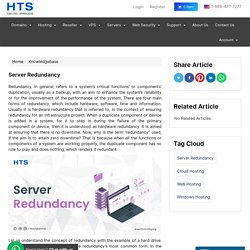

HTS Hosting
HTS hosting gives you the path to enhance the speed of sites, reducing the traffic i.e. traffic control, independency, high scalability, flexibility, loads balancing for multi servers. We at HTS hosting provides you the complete, reliable solution to your site by keeping in mind all credentials of your business. We design our solutions in such way that under one roof you will get all services executed. To be a stronger identity of web you should know all possible hurdles on the way.
Knowledge Base-How to Run a Manual Backup HTS Hosting. Here is all the information that is needed to run a manual backup.

You need to use the /usr/local/cpanel/bin/backup script for running a backup in WHM through the command line. For running a backup manually, you are required to log in to the command line through SSH. How to Delete a MySQL Database. How to Delete a MySQL Database. How to Delete a MySQL Database. MySQL refers to an open-source RDBMS (Relational Database Management System).

Data is organized into one or multiple data tables by a relational database. The data in these data tables is related to each other, which helps to structure the data. SQL is the abbreviation for Structured Query Language and it is a language that is used by programmers for the purposes of creating, modifying and extracting data from the relational database. It also controls users’ access to the database.
Apart from SQL and relational databases, an RDBMS, such as MySQL, functions with an OS (Operating System) for implementing a relational database in the storage system of a computer, manages users, enables network access, and facilitates the creation of backups as well as tests database integrity. How to Delete a MySQL Database. Knowledge Base-How to Delete a MySQL Database HTS Hosting. MySQL refers to an open-source RDBMS (Relational Database Management System).

Data is organized into one or multiple data tables by a relational database. The data in these data tables are related to each other, which helps to structure the data. SQL is the abbreviation for Structured Query Language and it is a language that is used by programmers for the purposes of creating, modifying, and extracting data from the relational database. Various Types of Network Protocols. Various Types of Network Protocols. Various Types of Network Protocols. Various Types of Network ProtocolsTable of Contents • Network Protocol • TCP (Transmission Control Protocol) • IP (Internet Protocol) • UDP (User Datagram Protocol) • FTP (File Transfer Protocol) • POP (Post Office Protocol) • SMTP (Simple Mail Transfer Protocol) • HTTP (Hypertext Transfer Protocol) • HTTPS (Hypertext Transfer Protocol Secure) • Telnet • GopherNetwork Protocol • A set of rules that has been established to specify the way in which data need to be transmitted between various devices in a network, is referred to as a network protocol.

It lets devices that are connected with each other communicate, despite the differences that exist in their structure, internal processes or design. Network protocols play an important part in digital communications. • Various devices can interact with each other due to network protocols that ensure that predetermined rules exist in the software and hardware of these devices.
Various Types of Network Protocols. Server Redundancy. Server Redundancy. Redundancy, in general, refers to a system’s critical functions’ or components’ duplication, usually as a backup, with an aim to enhance the system’s reliability or for the improvement of the performance of the system.

There are four main forms of redundancy, which include hardware, software, time and information. Usually it is hardware redundancy that is referred to, in the context of ensuring redundancy for an infrastructure project. When a duplicate component or device is added in a system, for it to step in during the failure of the primary component or device, then it is understood as hardware redundancy. It is aimed at ensuring that there is no downtime. Server Redundancy. Knowledge Base-Server Redundancy HTS Hosting. Redundancy, in general, refers to a system’s critical functions’ or components’ duplication, usually as a backup, with an aim to enhance the system’s reliability or for the improvement of the performance of the system.

There are four main forms of redundancy, which include hardware, software, time and information. Usually it is hardware redundancy that is referred to, in the context of ensuring redundancy for an infrastructure project. When a duplicate component or device is added in a system, for it to step in during the failure of the primary component or device, then it is understood as hardware redundancy. How to Activate Remote Desktop Services in Windows Server 2019. A comprehensive guide has been put together to ensure the convenience of those who need information on activating Remote Desktop Services in Windows Server 2019.

Let us run you through the necessary steps involved in activating Remote Desktop Services in Windows Server 2019. First you need to log on to the Domain Controller Right-click on the “All Servers” option in Server Manager Add the second server using the “Add Servers” command or select the “All Servers” node, then click “Manage” and click “Add Servers” Now click “Manage”, and click “Add Roles & Features”. Benefits of VPS Hosting for Online Businesses. Internet has permeated our lives in such a way that most of us are connected to it 24*7.

How can a business not take advantage of this to increase its global reach and in turn increase its customer base and the resulting profits? That is why most businesses have chosen to have their online presence by creating their websites, which are specifically designed for marketing/advertising and selling their products and services all across the globe, in every place where Internet is accessible. For these websites to be accessible over the Internet and to remain up and running uninterruptedly, it is essential to avail professional web hosting services that offer top-tier quality of web hosting. Web hosting, which includes VPS hosting, is a service that is required by each and every website owner for ensuring that his/her site is accessible online and running seamlessly.
VPS Hosting. Benefits of VPS Hosting for Online Businesses. Knowledge Base-Benefits of VPS Hosting for Online Businesses HTS Hosting. Internet has permeated our lives in such a way that most of us are connected to it 24*7.

How can a business not take advantage of this to increase its global reach and in turn increase its customer base and the resulting profits? That is why most businesses have chosen to have their online presence by creating their websites, which are specifically designed for marketing/advertising and selling their products and services all across the globe, in every place where Internet is accessible. For these websites to be accessible over the Internet and to remain up and running uninterruptedly, it is essential to avail professional web hosting services that offer top-tier quality of web hosting. What are the Advantages of a Managed VPS over an Unmanaged VPS?
A Managed VPS saves the time, effort and resources that one needs to invest in the management and maintenance of a VPS (Virtual Private Server), ensures the seamless execution of OS (Operating System) updates and takes care of troubleshooting processes.

A Managed VPS is meticulously and efficiently managed by the proficient IT team of the service provider. These are the major advantages of a managed VPS over an Unmanaged VPS, wherein the user is responsible for his/her VPS’ management and maintenance, installing relevant updates and handling troubleshooting processes. Now you know about the advantages of a Managed VPS over an Unmanaged VPS, but do you know what is a Managed or an Unmanaged VPS? Or for that matter, what is a VPS? Let us start off with the basics. What are the Advantages of a Managed VPS over an Unmanaged VPS? What are the Advantages of a Managed VPS over an Unmanaged VPS?
A Managed VPS saves the time, effort and resources that one needs to invest in the management and maintenance of a VPS (Virtual Private Server), ensures the seamless execution of OS (Operating System) updates and takes care of troubleshooting processes. A Managed VPS is meticulously and efficiently managed by the proficient IT team of the service provider. These are the major advantages of a managed VPS over an Unmanaged VPS, wherein the user is responsible for his/her VPS’ management and maintenance, installing relevant updates and handling troubleshooting processes. What Are Cloud Computing And The Benefits Of It? In a general sense, the cloud refers to something which is very divine and present in the sky. It is a planetary body, a blessing from the almighty from heaven. In a similar manner, cloud and cloud computing could be understood. From a technology perspective, “Cloud” are the servers which are servers that are accessed through the internet and hardware and software run on those servers.
Simply put, through cloud computing, an individual or a company can run the software and other applications without the need for physical servers. So, individuals and companies switching to cloud networking or computing reduce IT costs and other database maintenance costs. What Are Cloud Computing And The Benefits Of It? What Are Cloud Computing And The Benefits Of It? In a general sense, the cloud refers to something which is very divine and present in the sky.
It is a planetary body, a blessing from the almighty from heaven. In a similar manner, cloud and cloud computing could be understood. From a technology perspective, “Cloud” are the servers which are servers that are accessed through the internet and hardware and software run on those servers. Simply put, through cloud computing, an individual or a company can run the software and other applications without the need for physical servers. So, individuals and companies switching to cloud networking or computing reduce IT costs and other database maintenance costs. How is Shared Hosting Different from VPS Hosting? The service of web hosting is indispensable to online website accessibility. Web hosting is an essential service without which no website can be accessed online. In web hosting, server space is provided for storing the files of websites, and these files are subsequently delivered to the Internet connected devices of users for rendering websites accessible.
The services and technologies needed for this purpose and for keeping sites up and running seamlessly are also made available through web hosting by web hosting companies. The web servers offered by web hosting companies accept and fulfill client (browser or mobile applications) requests for website content (images, HTML pages, videos etc.). How is Shared Hosting Different from VPS Hosting? Knowledge Base-How is Shared Hosting Different from VPS Hosting? HTS Hosting. The service of web hosting is indispensable to online website accessibility. Web hosting is an essential service without which no website can be accessed online. In web hosting, server space is provided for storing the files of websites, and these files are subsequently delivered to the Internet connected devices of users for rendering websites accessible. The services and technologies needed for this purpose and for keeping sites up and running seamlessly are also made available through web hosting by web hosting companies.
Install or Update PostgreSQL on Your cPanel Server. Install or Update PostgreSQL on Your cPanel Server. Knowledge Base-Install or Update PostgreSQL on Your cPanel Server HTS Hosting. How to Restore a User’s Database Access. How to Restore a User’s Database Access. How to Restore a User’s Database Access. How to Restore a User’s Database Access. How to Restore a User’s Database Access. Knowledge Base-How to Restore a User’s Database Access HTS Hosting. Free SSL Certificates on All Linux Dedicated Hosting Plans. Free SSL Certificates on All Linux Dedicated Hosting Plans. Free SSL Certificates on All Linux Dedicated Hosting Plans. Free SSL Certificates on All Linux Dedicated Hosting Plans. Free SSL Certificates on All Linux Dedicated Hosting Plans. Ways to Ensure VPS Security. Ways to Ensure VPS Security. Ways to Ensure VPS Security. Ways to Ensure VPS Security. Knowledge Base-Ways to Ensure VPS Security HTS Hosting.
DNS Related Technical Terms. DNS Related Technical Terms. DNS related Technical Terms. DNS Related Technical Terms. DNS Related Technical Terms. What are the differences between Snapshots and Backup in Virtual Machines. What are the differences between Snapshots and Backup in Virtual Machines. What are the differences between Snapshots and Backup in Virtual Machines. What are the differences between Snapshots and Backup in Virtual Machines. What are the differences between Snapshots and Backup in Virtual Machines.
Centos vs Cloud Linux. Centos vs Cloud Linux. Centos vs Cloud Linux. Centos vs Cloud Linux. How to Install cPanel on Linux Servers. How to Install cPanel on Linux Servers. How to Install cPanel on Linux Servers. How to Install cPanel on Linux Servers. How to Install cPanel on Linux Servers. Upload Files, MP3, Music. Free File Hosting To Share Files. SSH and Basic Commands to Handle VPS. SSH and Basic Commands to Handle VPS. SSH and Basic Commands to Handle VPS. SSH and Basic Commands to Handle VPS. The Difference between a VPS and a Dedicated Server. The Difference between a VPS and a Dedicated Server. The Difference between a VPS and a Dedicated Server. The Difference between a VPS and a Dedicated Server.
The Difference between a VPS and a Dedicated Server. WordPress Hosting: Hosting Optimized for WordPress Sites. WordPress Hosting: Hosting Optimized for WordPress Sites. WordPress Hosting: Hosting Optimized for WordPress Sites. WordPress Hosting Hosting Optimized for WordPress Sites. WordPress Hosting: Hosting Optimized for WordPress Sites. How to Activate Active Directory on Windows Server 2016. How to Activate Active Directory on Windows Server 2016. How to Activate Active Directory on Windows Server 2016. How to Activate Active Directory on Windows Server 2016. How to Activate Active Directory on Windows Server 2016. Bandwidth vs. Latency. Bandwidth vs. Latency. Bandwidth vs. Latency. Bandwidth vs. Latency. Knowledge Base-Bandwidth vs. Latency HTS Hosting. Know More about Securing your Website and Get it... Know More about Securing your Website and Get it Protected from Hackers.
Know More about Securing your Website and Get it Protected from Hackers. Know More about Securing your Website and Get it Protected from Hackers. Know More about Securing your Website and Get it Protected from Hackers. Difference between VPS and Shared Hosting. Difference between VPS and Shared Hosting. Difference between VPS and Shared Hosting. Difference between VPS and Shared Hosting.